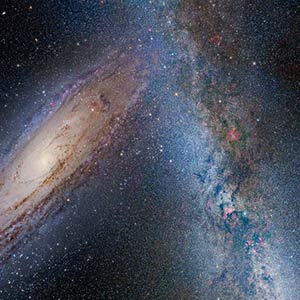Page 14


Did You Know
By Ginger Wentrcek
It's enough to make you dizzy.
Picture yourself in an airplane, jetting off to a distant location. When the plane barrels down the runway, you feel the sensation of speed because it is accelerating; the speed is changing. Once in the air, the speed is constant and the speed is not noticeable. But, when it is time to land and the speed changes, or decelerates, you feel the sensation of speed. Earth is also moving at a fixed rate so we can't detect a sensation of speed. And, it's a good thing we can't, because, as you are standing or sitting at this very moment, you are spinning and traveling at dizzying speeds.
Is Gracie Moving?
The photo to the right is Gracie, my Australian Labradoodle, in training as she learns the “stay” command. She does not appear to be moving - but she is. In fact, she is moving at incredible speeds, just like you and I are moving at unimaginable speeds right along with her.

Earth Spins
If you are standing at the equator, the earth is spinning 1,037mph. The further north (or south) of the equator you travel, the slower you are spinning.

Earth Travels Around the Sun
Earth is traveling around the sun at approximately 67,000 mph.
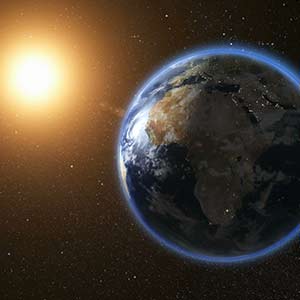
Solar System Movement
Our sun and solar system are moving towards Vega at about 43,000 miles per hour.
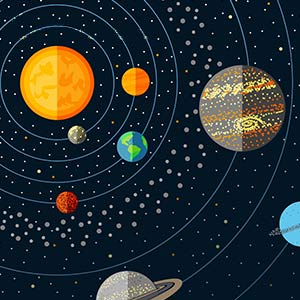
Movement Around the Milky Way
Our solar system has to travel 483,000 miles per hour to travel around the Milky Way in one galactic year. That means if you lived to be 225,000,000 years old, you would travel around the Milky Way one time.
Photo Credit: Milky_Way_2005.jpg: R. Hurtderivative work: Cmglee [Public domain]
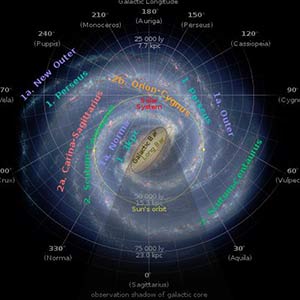
Speeding Milky Way
It is estimated that our Milky Way galaxy is moving towards the constellations of Leo and Virgo at 1.3 million mph.
Photo Credit: Ginger Wentrcek

Local Group Movement
Our Local Group is moving 1342162 mph miles per hour in the direction of a local supercluster.
Photo Credit: Antonio Ciccolella [CC BY-SA 4.0 (https://creativecommons.org/licenses/by-sa/4.0)]
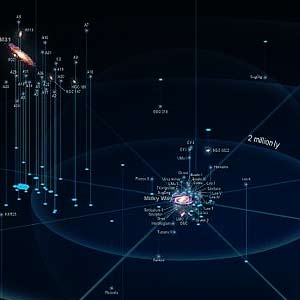
Other Astonishing Speeds:
Milky Way and Andromeda
The Milky Way is moving towards Andromeda at 300,000 mph.
Photo Credit: NASA [Public domain]
